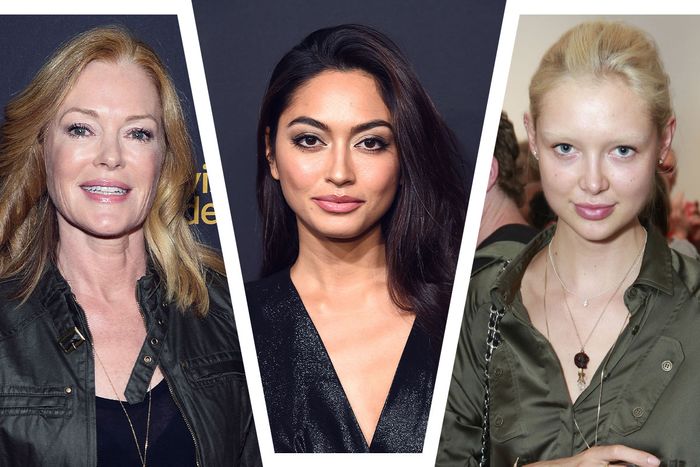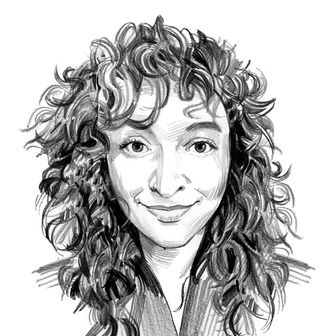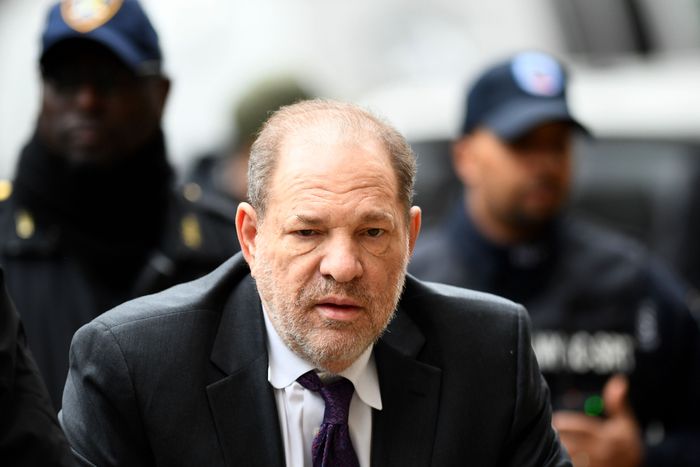
Harvey Weinstein’s next sexual-assault trial — his second rape trial in less than three years — starts on October 10 with jury selection. The disgraced producer faces 11 counts for allegedly sexually assaulting five women in California between 2004 and 2013. Prosecutors are expected to call four additional women not involved with the charges to testify about further allegations of misconduct to bolster the case against Weinstein.
The L.A. proceeding is years in the making: In October 2017, the New York Times and New Yorker published landmark investigations in which Weinstein’s accusers described misconduct ranging from sexual harassment to assault spanning much of his career. In the wake of these investigations, dozens more women came forward with similar allegations against him. Weinstein was eventually arrested on May 25, 2018 in Manhattan on rape and sexual-assault charges involving two women. On January 6, 2020, just one day before jury selection began in his New York City trial, Los Angeles authorities announced they were also bringing charges against him.
Weinstein was found guilty in his New York City case on February 24, 2020 of criminal sexual act in the first degree and third-degree rape for separate attacks on two women, Miriam Haley and Jessica Mann, and has since been behind bars. Justice James Burke sentenced Weinstein on March 11, 2020 to 23 years in prison. Criminal proceedings have also begun abroad: The U.K.’s Crown Prosecution Service announced on June 8, 2022 that it had authorized London police to charge Weinstein with two counts of indecent assault against a woman in August 1996. Meanwhile, Weinstein continues to fight his New York conviction, and the state’s highest court agreed on August 24, 2022 to hear his appeal based on his claim that the testimony about uncharged prior bad acts was prejudicial. (If that sounds familiar, it’s because it’s among the arguments Bill Cosby made in appealing his conviction, which was overturned in May 2021.)
Weinstein, who maintains his innocence, is all but certain to appeal if convicted in Los Angeles. Asked for comment on the upcoming case and allegations generally, a rep for Weinstein said he “denies doing anything without consent.” If convicted in the California case, Weinstein faces more prison time — up to an additional 140 years behind bars. Regardless of the outcome, though, the proceedings suggest that Me Too is not losing momentum half a decade after its inception. “I feel that the trial in L.A. is going to be very important,” says Ambra Battilana Gutierrez, who is expected to be one of the four additional women testifying in L.A. “It’s going to reopen the things that he has done.” Below, Gutierrez, along with two other women who’ve accused Weinstein of sexual misconduct but are not participating in the trial, share their feelings on the upcoming proceedings, and what they expect from the reopening of the Weinstein saga.
Caitlin Dulany
The Saving Grace actress came forward about an alleged 1996 assault after the New York Times’ investigation, at the urging of her sister. Dulany subsequently became a lead plaintiff in civil litigation against Weinstein, which has since settled. Dulany is not a witness in this trial, but plans on attending the proceedings.
There was such a sense of triumph and success around Harvey Weinstein’s conviction in New York right before the pandemic lockdown. It was quite a roller coaster, in the sense that a lot of people thought that he wouldn’t be found guilty. I remember feeling like it’s a new day, it’s a new dawn, [that] things will be different now. It really is just horrific if you think about how many years this was happening and how many women were affected by his behavior, and to be able to get some kind of justice in a criminal court was amazing and spoke to a future that bodes well for survivors, for those speaking out and seeking justice.
The Cosby conviction being overturned, and now Harvey Weinstein having won an [opportunity] to challenge his conviction in New York, is a blow.
There’s a lot at stake in the L.A. trial. It is very personal. Whenever I think of myself, I think of all the other women this happened to as well. They deserve justice and personal closure. I think that seeing all of this through, and paying attention to it, and speaking about it, and thinking about it, is very important to me and whatever the outcome will provide some closure. I know a lot of us have been on a real personal journey with the trial and conviction in New York, and now with the Los Angeles trial. It’s a time of reflection. It’s a time when a lot of feelings resurface: fear, regret. When something like this happens to you, it changes the trajectory of your life, so there’s a sense of loss around revisiting it and it’s very personal. It’s like you’re sort of facing everything the assault sort of caused, the ripple effects in your own life. You’re looking at this man being in court over similar things that happened to you. I feel for the other women that this happened to, so there’s a lot of empathy. It’s a struggle. There’s a part of me that wants to bury my head in the sand.
Going to the trial is so fraught with mixed emotions. It’s like facing something from the past. I very much want to go. I know it’s going to be hard, but I want to be there. I do trust that the showing up is right, and the way to healing, and hopefully justice for all of us.
Ambra Battilana Gutierrez
In 2015, Gutierrez told New York City police that Weinstein groped her. After coming forward, Gutierrez wore a wire and recorded him admitting to it. Despite the recording, then-Manhattan District Attorney Cyrus Vance Jr. decided not to pursue charges against Weinstein. The activist and model is expected to testify in Weinstein’s Los Angeles trial.
I’m happy that there is still something happening with the situation, because I feel that people have a very short memory, and they kind of forget when things happen. We have to keep on doing this sort of thing, to just refresh people’s memories. I feel that the trial in L.A. is going to be very important, and it’s going to reopen the things that he has done. I feel that being part of this trial will be helpful, at least for having people remember what happened. I can say that my life is good. It wasn’t perfect during [2015], where I was silenced and everything, but just the fact that we started the movement, I feel that it was worth it. The biggest problem right now it’s to keep this movement going.
It’s been three years that I haven’t modeled and these things happened back in 2015. So I could say that I’ll be happy to see that models are feeling better and safe. That’s why I work and contribute to be part of Model Alliance, a nonprofit organization that helps models, and they’re doing great work. They’re doing things like trying to change laws and give safe spaces for models to work and have the right to [address] whatever sort of situation happened to them with their support. I feel tat we have to really give voice and support people to try to make changes. It’s not going to make me feel good if I [just] have my own victory. I wanted to change it for the world.
Kaja Sokola
The former model has said that Weinstein sexually assaulted her at age 16, shortly after she arrived in the U.S. to pursue a modeling career. According to court records, Sokola’s lawsuit is pending. Sokola, like many other survivors, is advocating for victims’ rights — and better protections for persons in the modeling industry.
I’m really amazed [by] and full of respect for the women that will be testifying there. I know that this has to be such a difficult experience and second of all, I really hope that this time around, there won’t be so many attacks on the women that are testifying. In the New York trial, I know that it was traumatizing for some of the women that were testifying. I’ve been really trying to think, trying to understand: When he looks in the mirror, does he understand what he has done? [Him] being in such full denial is [as] terrifying for me as a person and as a psychologist. Did he really completely block this part of what happened, or is he convinced that it never happened? I can’t put my head around that. I really hope with the appeal — he was granted to be heard about his appeal — that they will sentence him for longer [if convicted in Los Angeles], so there will be no chance that this man will just walk out of that, like Bill Cosby did. If the trial would go well, and he would admit or he would just show any kind of empathy to women, this would be even more rewarding than anything else.
I can’t say that seeing him suffering makes me happy. It’s not like that. But seeing him facing all of these things, yes, this gives me a sense of relief because for so long, we were told — women were told, that it’s okay, “nothing ever happened.” We were just gaslighted. Right now, to have this all being talked about, and having women, outspoken women, saying how it happened and what happened, this is a healing process on its own. I believe fighting for justice is already a reward. I always try to focus on the road rather than on the destination. I believe the trial itself, it is worth it, and it is very good that it’s happening. It will help. A lot of things were put under the carpet and right now, to take the carpet up and show all the dirt that’s under there, that’s powerful.
These interviews were edited for length and clarity.



